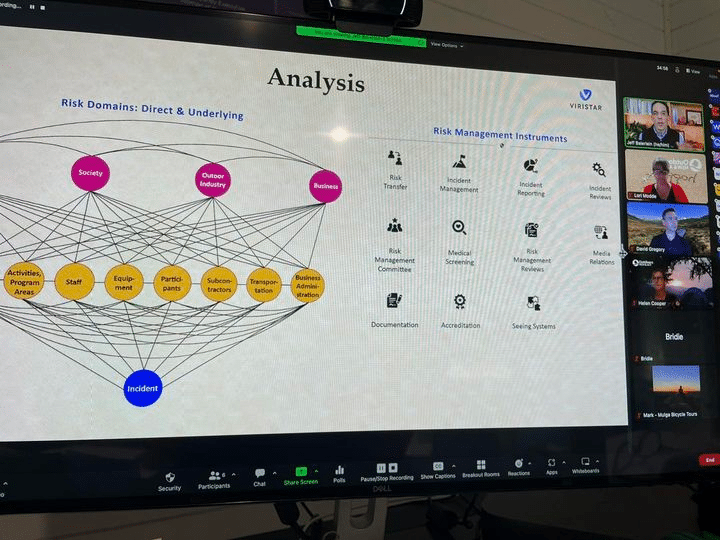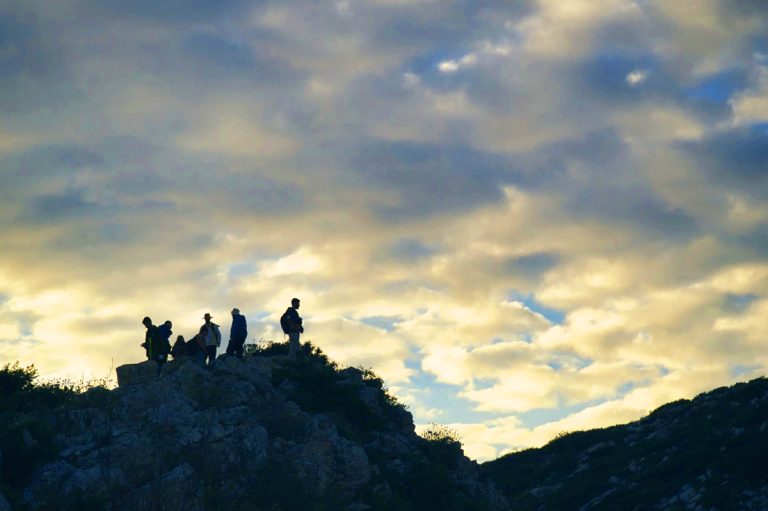Viristar presented a case study on a stand up paddleboarding incident in Wales to members of Outdoors NSW & ACT, the Australian peak body for outdoor professionals and organizations in New South Wales and the Australian Capital Territory.
The January 27 presentation, part of Outdoors NSW & ACT’s weekly Connect and Share Forums, outlined findings from the UK’s Marine Accident Investigation Branch’s analysis of the incident. It focused on the MAIB’s findings of systemic contributing factors.
These included government outdoor safety legislation not applicable to adult programs, confusion over who owned and was responsible for hazardous outdoor infrastructure like low head dams, lack of universally applied standards for mitigating dam hazards, uneven SUP training practices, confusion over which peak body governed the sport of SUP, the absence of a requirement for peak bodies to develop and promulgate safety standards, and more.

A trip leader’s avoidable death
The presentation discussed the tragic situation of Paul O’Dwyer, one of the SUP tour’s trip leaders, and a 42-year old father of three.
Paul, an accomplished champion surfer and keen outdoorsperson, had taken SUP Safety & Rescue and SUP Foundation Instructor courses from the Water Skills Academy, but not their five-day Expedition SUP Guide Training & Assessment course, which would have provided qualifications for leading multi-day SUP expeditions on moving water.
Yet there was no peak body, safety legislation, national Sports Council or other organization that put practices into place where SUP trip leaders were required to have appropriate training.
Similarly, there was an absence of a compulsory accreditation scheme to help ensure that SUP tour providers had risk assessments, standard operating procedures, or an emergency action plan. Peak bodies in the UK, in fact, are not required to have safety systems or processes in place, as a condition of being recognized as a governing body.
Mr. O’Dwyer, who was the last in line of a group of SUPers who paddled over a low-head dam, saw that individuals who had gone over the dam and were trapped in the recirculating hydraulic below the structure were having trouble. He landed above the dam to evaluate the situation. In a brave and selfless act, he then jumped back on his SUP to go over the dam and help those in need. Alongside three trip participants, he was caught in the recirculating water at the base of the dam, and drowned.
It was noted that analysis of the incident should not focus on Mr. O’Dwyer’s decision to attempt a high-risk rescue, but the deficits in safety laws, standards-setting, and practices of peak bodies and other institutions that made it possible for the trip leader to be put in the terrible position of needing to make a judgment about embarking on a high-risk effort to save the lives of others.
If future tragedies like Mr. O’Dwyer’s drowning are to be averted, systemic improvements to regulation and governance of the led outdoor activity sector are important to have in place.
The discussion about SUP risk management in Wales was particularly poignant for those in Australia, as on January 23 a paddleboarder on a personal beach trip with members of her family drowned in Jervis Bay on the NSW South Coast
Strong winds in this area can sweep paddlers offshore, even when the water looks calm.
Outdoors NSW & ACT and the Australian outdoor sector
Presentation attendees noted that Outdoors NSW & ACT is working with the Outdoor Council of Australia on a federal level to support the outdoor recreation, education, therapy and adventure tourism sector. This includes working with government stakeholders to support excellence in risk management in outdoor activities, for example through accreditation or other approaches.
As Outdoors NSW & ACT’s membership grew outside NSW and the ACT, a new organization, Australian Outdoor Industry, was also established. AOI is a national support body for organisations and individuals that connect communities with the outdoors.
Lori Modde, the CEO of Outdoors NSW & ACT, reminded participants that anonymous reports regarding conformance with the Australian Adventure Activity Standard and Good Practice Guides can be submitted via AOI’s confidential feedback form.
Next week’s Connect and Share Forum guest presenter will be from the Australian Maritime Safety Authority, which should be a fitting follow-up to Viristar’s session on findings from the UK’s Marine Accident Investigation Branch.
Anyone is welcome to attend upcoming Connect and Share Forums, and recordings of the events are available to Outdoors NSW & ACT members. As part of a special arrangement with Viristar, the recording on the SUP incident is made available to the Viristar community below.



